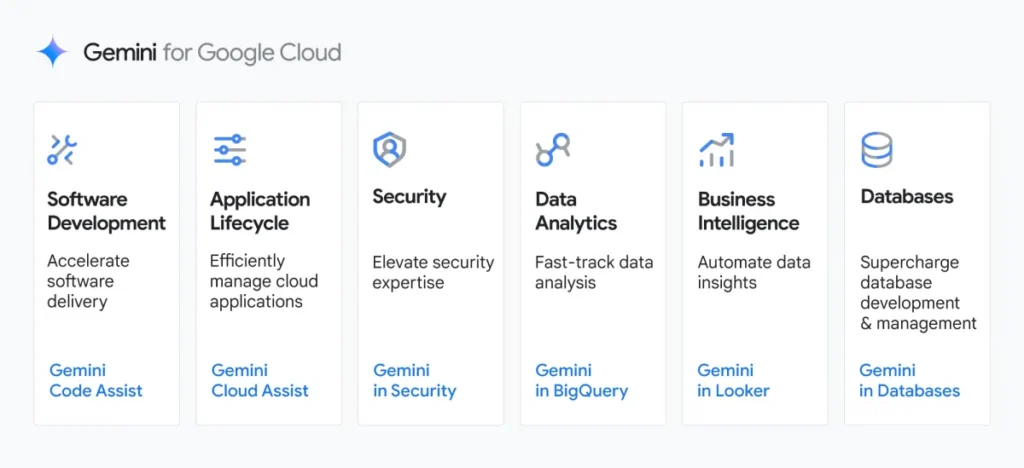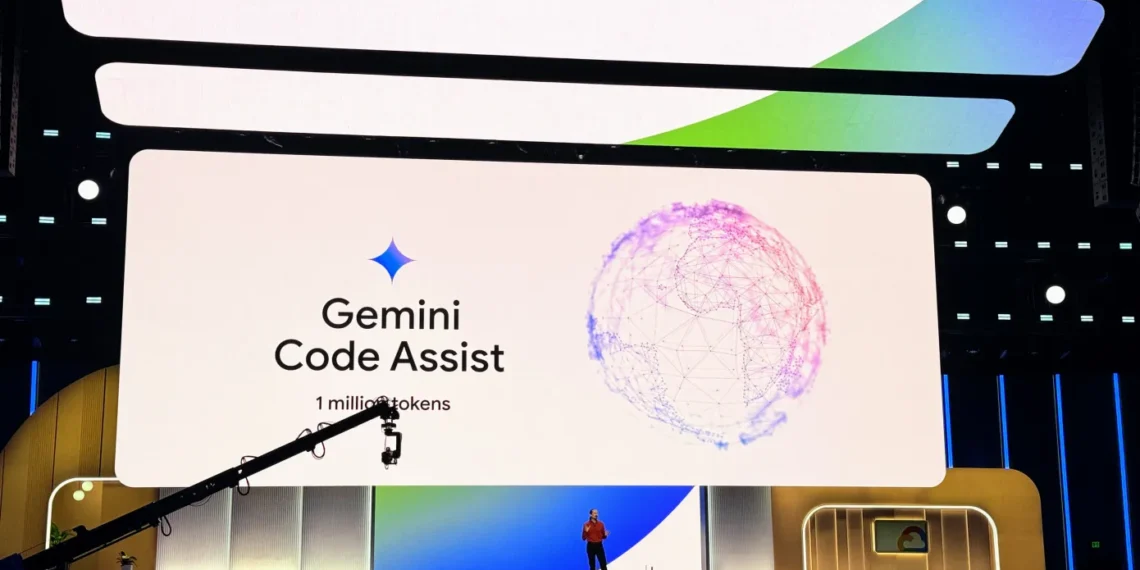At Google’s Cloud Next conference on Tuesday, April 9, the tech giant introduced Gemini Code Assist, a specialized AI tool tailored for enterprise users to streamline code completion and assistance.
This announcement may ring a bell as Google had previously offered a similar service dubbed Duet AI, which has since been retired.
Duet AI entered the scene in late 2023 but Google hinted at transitioning towards Gemini in the future. With Code Assist, Google not only rebrands its earlier service but also rolls out substantial updates.
Accessible via plug-ins compatible with popular editors such as VS Code and JetBrains, Code Assist aims to enhance developers’ productivity and coding experience.
What sets Code Assist apart, particularly from GitHub’s Copilot Enterprise, is its tailored approach geared specifically towards enterprise needs.
While basic Copilot may have been the initial reference point, Google’s Code Assist introduces its distinctive features, positioning itself as a direct competitor in the enterprise AI coding assistance arena.
Another feature included in the update is the support for Gemini 1.5 Pro. Google says this means more accurate code suggestions, for example, but also the ability to reason over and change large chunks of code.
“This upgrade brings a massive 1 million-token context window, which is the largest in the industry. This allows customers to perform large-scale changes across your entire code base, enabling AI-assisted code transformations that were not possible before.”
Brad Calder
Like GitHub Enterprise, Code Assist can also be fine-tuned based on a company’s internal code base.
“Code customization using RAG with Gemini Code Assist significantly increased the quality of Gemini’s assistance for our developers in terms of code completion and generation,” said Kai Du, Director of Engineering and Head of Generative AI at Turing.
Du added, “With code customization in place, we are expecting a big increase in the overall code acceptance rate.”

Another distinguishing feature of Code Assist lies in its versatility to support various codebases, regardless of their location – whether on-premises, within GitLab, GitHub, Atlassian’s BitBucket, or even distributed across different services.
This flexibility addresses a crucial gap in the market, as many of Google’s competitors currently lack such comprehensive support.
Moreover, Google is forging partnerships with several developer-focused companies to enrich the knowledge available within Gemini.
Following Stack Overflow’s earlier collaboration announcement with Google Cloud, a slew of prominent names including Datadog, Datastax, Elastic, HashiCorp, Neo4j, Pinecone, Redis, Singlestore, and Snyk have joined forces with Google through similar partnerships.
Despite its impressive features, if Code Assist suffers from high latency or fails to provide valuable results, its touted capabilities could lose their significance.
Moreover, in comparison to Copilot, which has already gained substantial traction, Code Assist must demonstrate a marked improvement to stand out in the competitive landscape. Otherwise, it risks facing a fate similar to AWS’ CodeWhisperer, which failed to gain momentum.
It’s worth noting that in addition to Code Assist, Google today also announced the launch of CodeGemma, a new open model in its Gemma family that was fine-tuned for code generation and assistance. CodeGemma is now available through Vertex AI.
Cloud Assist
In addition to Code Assist, Google also today, April 9 announced Gemini Cloud Assist to help “cloud teams design, operate, and optimize their application lifecycle.” The tool can generate architecture configurations that are tailored to a company’s needs, for example, based on a description of the desired design outcome.
It can also help diagnose issues and find their root causes, as well as optimize a company’s cloud usage to reduce cost or improve performance.
Cloud Assist would be available through a chat interface and embedded directly into a number of Google Cloud products.
READ ALSO: Reggie Rockstone Extols Wife’s Resilience























